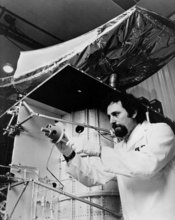Over the past decades, the importance of on-air networks has changed immensely. Their roles have changed because of the many different stages it went through.
In the 1950's, cable only carried about 5 or 6 channels, which were all local stations. With the use of the community antenna television (CATV), signals could be transmitted by wire to local subscribers. CATV operators soon after they found ways to augment their services by using microwave relays, which enabled the programs to be delivered a farther distance.
Although, in the 1960's, broadcasters began to realize that augmented CATV transmitted to distant cities appeared to be more fuzzy than normal. In 1962, the FCC began to use microwave relay licenses as a justification for regulating cable systems that imported distant station signals. There soon became a demand for domestic satellites (domsats), but was delayed because of the well-developed existing national systems of microwave and coaxial cables.
Finally in 1972, the FCC adopted an "open-skies"� policy, which allowed financed and technically qualified business firms to use satellites for domestic use. The Western Union's Westar I was the first American domsat. This satellite, like other domsats, operates as point-to-point, rate-regulated communication services.
Deregulating television receive-only (TVRO) antennas was a second satellite-related FCC decision in 1979. These antennas were used to pick up programs relayed by a satellite. This decision opened the way to satellite use for transmitting programs to cable systems. Both domsats and TVRO offered a less expensive way of obtaining programs to attract subscribers.
Ted Turner played a major part in changing television's role. Turner, an entrepreneur, created superstations which greatly expanded cable's program menu. It all started in 1970 when he decided to buy an Atlanta station, WTCG, and renamed it WTBS (Turner Broadcasting System). The schedule was packed with movies...


